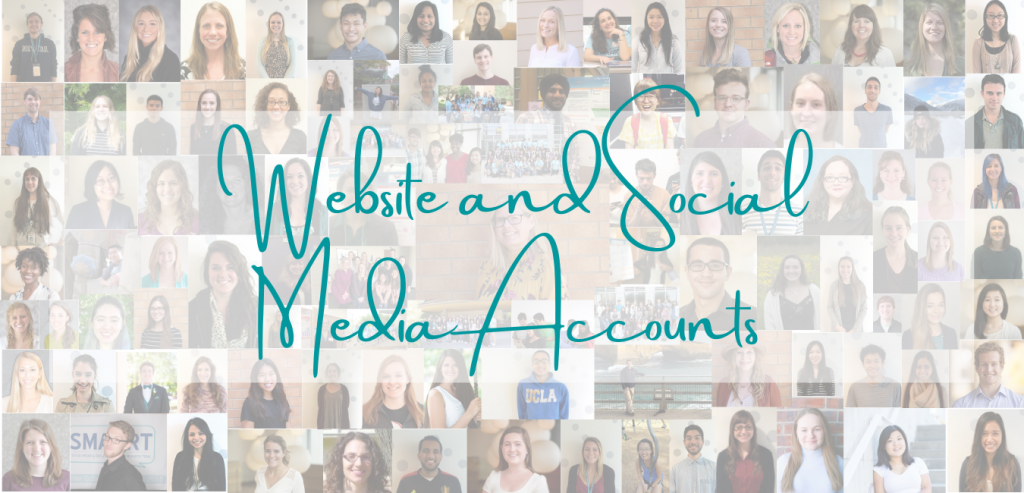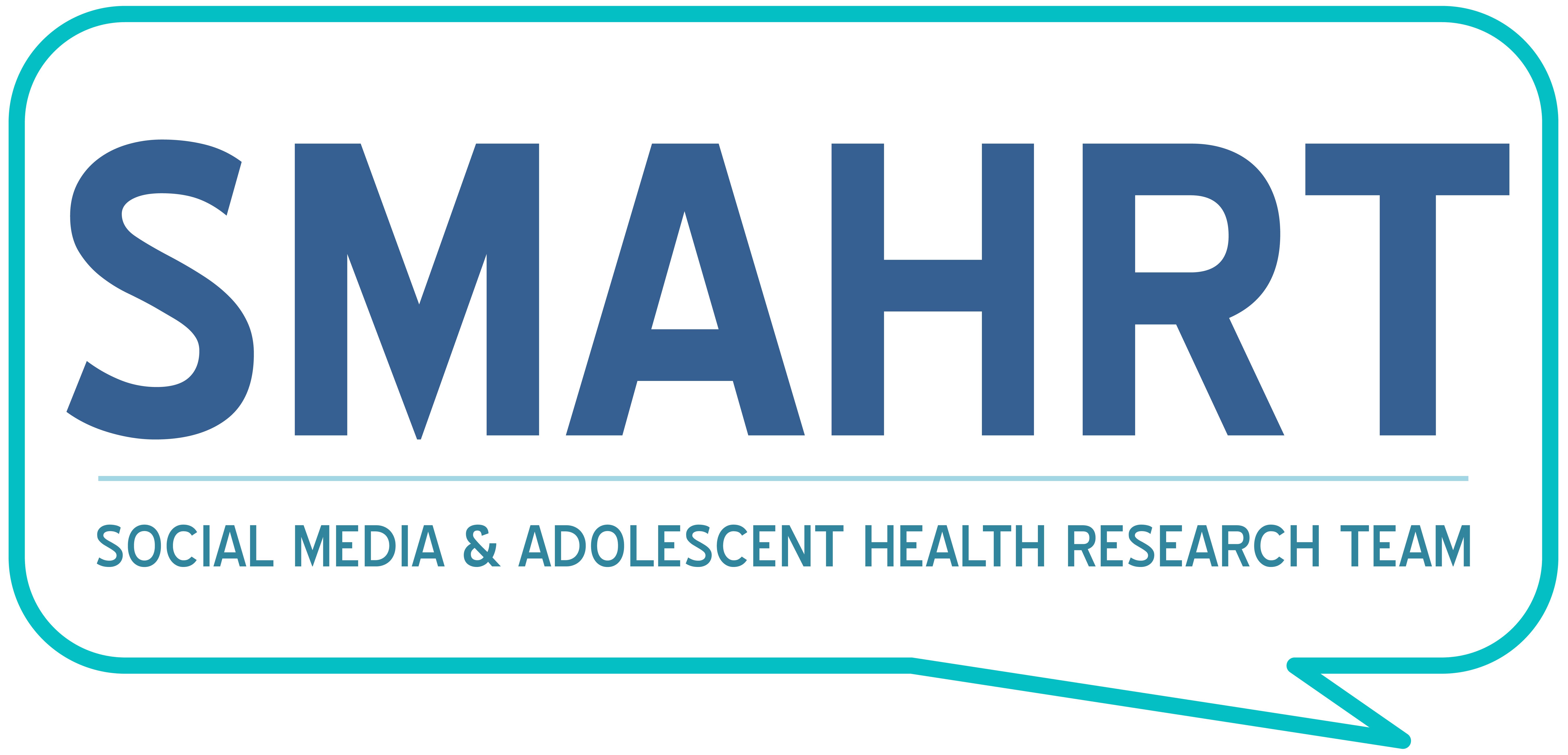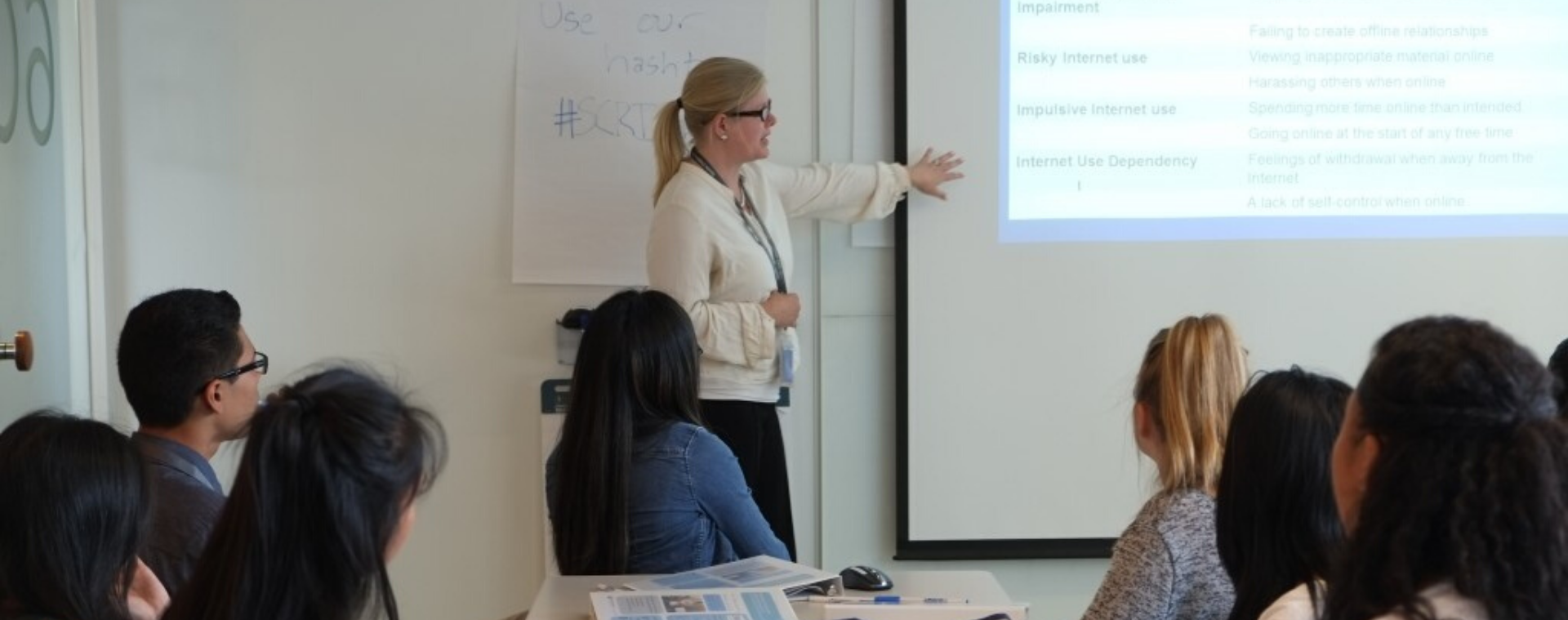
By: Reese Hyzer with input from SMAHRTeam members
Our team’s digital media, such as our website and social media accounts, are routinely used to disseminate research findings and connect our team with colleagues, collaborators, youth and community members. This is another area where we wanted to re-evaluate the language used on our website to reflect our goal to incorporate diverse voices and perspectives in our research. To begin, we compiled a list of websites, including our own, that aligned with the multiple aspects of our work, such as professional associations, researchers, and non-profits that work with adolescents.
Each team member was tasked with navigating one of these websites and observing how others were discussing the Black Lives Matter movement. Upon our analysis of the other websites we felt that as a research team we wanted to not only address racism in science, but to be transparent about our team’s efforts to approach our work through an anti-racist lens. Our goal is to keep the conversation about being an anti-racist researcher going and to share our experiences on how we’re incorporating anti-racism practices into our research team, with the hopes that others may be able to translate some of our practices to their work.
We also wanted to evaluate our social media to also determine if this mission was translated across all our accounts. We did this by conducting a social media audit that evaluated our posts over the last year and provided insights into areas of improvement. Our goal is to leverage these findings to better understand our current social media practices, with the goal of using our findings to better inform our content moving forward. As a social media research team, we understand how social media can help disseminate research, information and connect with others beyond our existing network. We hope to use our platform to speak to a diverse audience and lift up other researchers in our field.
Some reflections team members had when conducing the website review and social media audit were:
“Looking at different websites related to SMAHRT showed me that talking about race, racism and being anti-racist isn’t talked publicly among organizations were social justice isn’t their main mission. I think that the best way to normalize talking about racism and becoming anti-racist is to be open and transparent about the journey. As we’re becoming aware of all of the racial inequalities and disparities around us, it is imperative that we take steps toward changing both our attitudes and behaviors to work toward making the systems we’re apart of anti-racist.” – Reese Hyzer
“Conducting a social media audit was helpful for us to understand what was and was not working on our social media in terms of reaching a more diverse audience. I feel like we have a good understanding of who our followers are currently, but the audit helped us create a new strategy to reach people outside of who we know in person and to share the work of other researcher’s work in our field.” – Maggie Bushman
“Looking at different websites that are similar to SMAHRT was interesting to examine because I was able to learn about how other organizations are forming conversations around diversity, equity, inclusion and anti-racism. Seeing several organizations work towards addressing racial inequities is so important.” – Dr. Megan Moreno
For more anti-racism resources visit: http://smahrtresearch.com/resource-list/

